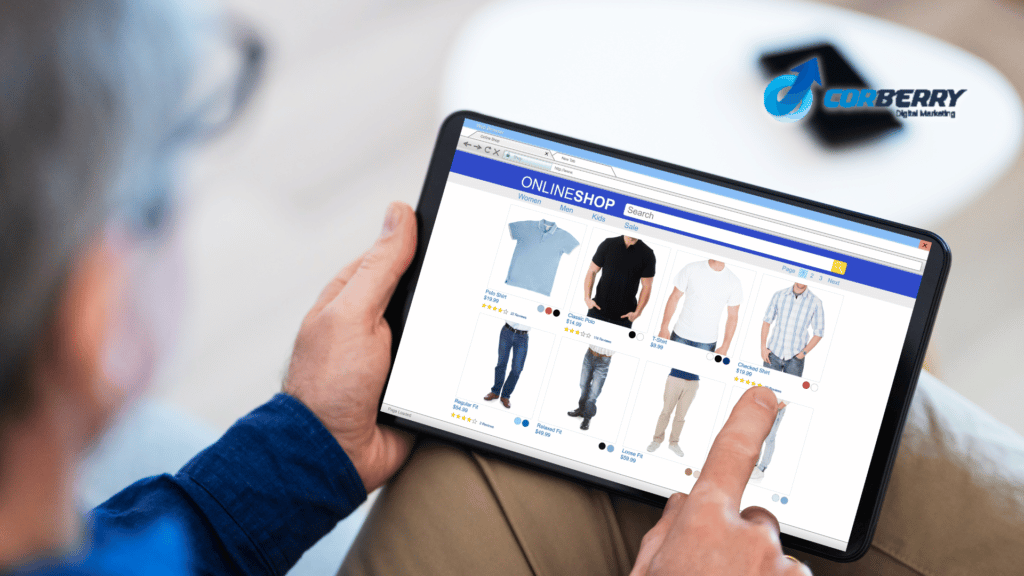
E-commerce PPC management has seen several evolutions over the past few years, and the changes will continue in 2022. To stay up-to-date, you need to be aware of all the latest developments and trends that come into play in this field every year.
Use this information to keep your finger on the pulse of E-commerce PPC management to optimize your business’s performance and make smarter marketing decisions in the future.
Here are some significant changes to expect in E-commerce PPC management over the next five years.
What Is E-commerce PPC Management?
E-commerce PPC Management is essential to any E-commerce company’s marketing strategy. PPC ads are shown on search engines, like Google and other websites. When a possible client clicks on an ad, they are directed to the company’s website, where they can acquire additional information about the advertised goods, check out customer reviews, or make a purchase.
It is remarkably inexpensive compared to other advertising types, such as television commercials or print ads. Additionally, it has the potential for greater exposure due to its nature as an internet advertisement. However, understanding how to run a PPC campaign successfully takes time and experience.
Why Use E-commerce PPC Management?
When you’re running an E-commerce site, using PPC management is critical, especially if you want to tap into the business’s success and make it grow. However, there are quite a few things that you need to know about PPC, and these are some of the most important:
- You need to know how to write an effective ad.
- You need to understand your customer and what they’re looking for.
- You need to make sure that your website is optimized for search engines.
To put it simply, search engine marketing, or SEM for short, refers to paying for ads on search engines and getting your website in front of people who might be interested in what you’re selling. It’s an advertising method that can yield promising results from increased sales figures to more visibility on Google search pages.
Of course, when we talk about optimizing your SEM strategy, we mean ensuring all the right strategies are employed. For example, a social media campaign can help you spread awareness across different platforms, while SEO ensures that your content has been optimized to appear on Google searches.
Therefore, if you’re still wondering why E-commerce businesses should invest in PPC management, this post has just answered a part of that question.
The Best E-commerce PPC Management Strategies
The Internet’s impact on people’s daily lives continues to grow. As a result, E-commerce sites have become more and more popular.
Since PPC management has been around for so long, it continues to exist and can even thrive in the future. Here are some of the best strategies for E-commerce PPC management in 2022:
1) Integrate Keywords Strategically
When buying advertisements on search engines, don’t just input all of your products with the words “cool stuff.” It may seem like you’re saving time, but you’re hurting your conversion rates because your customers can’t find what they want. Instead, choose a few keywords related to your product and ensure that they’re present in both the text and title of the advertisement. It’s also essential to include the price range so that potential buyers know whether or not their budget will allow them to purchase it.
An excellent way to find these keywords is using Google Adwords Keyword Tool. However, it’s crucial not to overspend your monthly budget because there’s no point in wasting money on ads if people aren’t clicking through them!
2) Choose an Advertising Medium
You need to know where you should promote your PPCs before you begin your PPC adventure. Many sites may accept your offer, but will they assist you in turning those visitors into paying customers? Google Merchant Center and Amazon Advertising are the two quickest PPC ad systems, while many other viable choices exist.
Your research can help you find a system that suits your budget and advertising needs. But do not get too fixated on what’s popular, or it might make things more difficult for you than they have to be. Many companies advertise on all four mediums (Google, Facebook, YouTube, and Twitter) so take time to research which is best for your company!
3) Engage in Relevant Communication with E-commerce Customers
Your customer conversations should be dynamic, engaging, and tailored to each customer’s needs. Not only does this create loyalty but also an increased sense of brand awareness. The most important aspect of E-commerce communication is relevance. When consumers feel like the company is not catering to their needs, they look for a competitor that can provide what they need better than the current company.
The importance of relevance should not be overlooked. When a business fails to provide what its customers expect, they look elsewhere for its requirements to be met.
4) Optimize Your Product Descriptions
Your product descriptions are typically visible on SERPs because they’re shown below the fold on most pages. Please pay close attention to keywords because they’re what customers search for when looking for products online. Ensure that your description includes all necessary information, including shipping information and prices.
After you’ve included all of your information, make sure it flows well and is easy to read. If you find that a portion is hard to understand or doesn’t seem clear, revise it until you’re happy with how it sounds.
5) Monitor the Performance of Your Product Pages
Google Analytics allows you to monitor your product pages to see what types of customers are visiting and what they’re looking for. This way, if you notice that a certain type of customer is searching for a product that isn’t on your site, it might be time to add one.
Frequently Asked Questions
Is PPC good for eCommerce?
PPC if used in the right way will boost your organic traffic and organic leads. Strategizing the correct PPC campaigns can improve your advertising structure to multiple folds.
What is PPC Management in Amazon?
Amazon PPC management is nothing but strategizing, running, optimizing, and measuring your Amazon PPC ad campaigns.
What are the three types of PPC?
The main three types of PPC are:
- Headline search ads
- Sponsored product ads
- Product display ads.
Conclusion
Using PPC management can make all the difference in your E-commerce business. Your product will be available not only for people searching on Google but also on Facebook and other search engines. Using a PPC management service can reduce the time spent managing ads so you can focus on more critical aspects of your business.
Even better, these services are typically cheaper than hiring an individual to manage the ads because they work with many different clients at once. You can increase conversion rates with more targeted ad campaigns by targeting the right audience.


